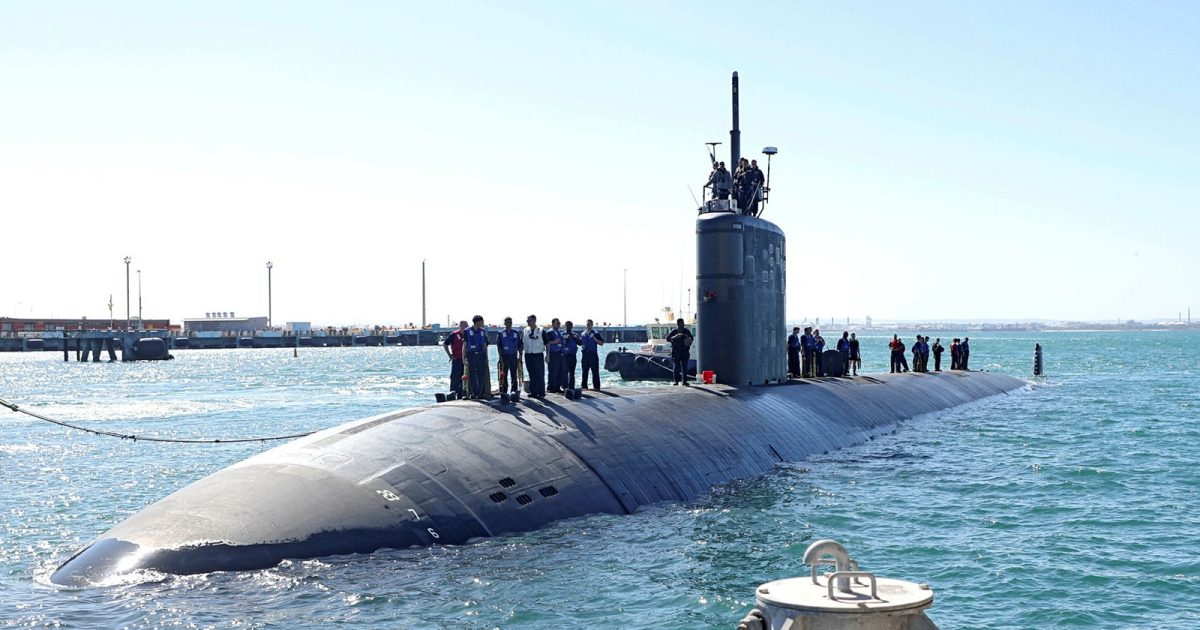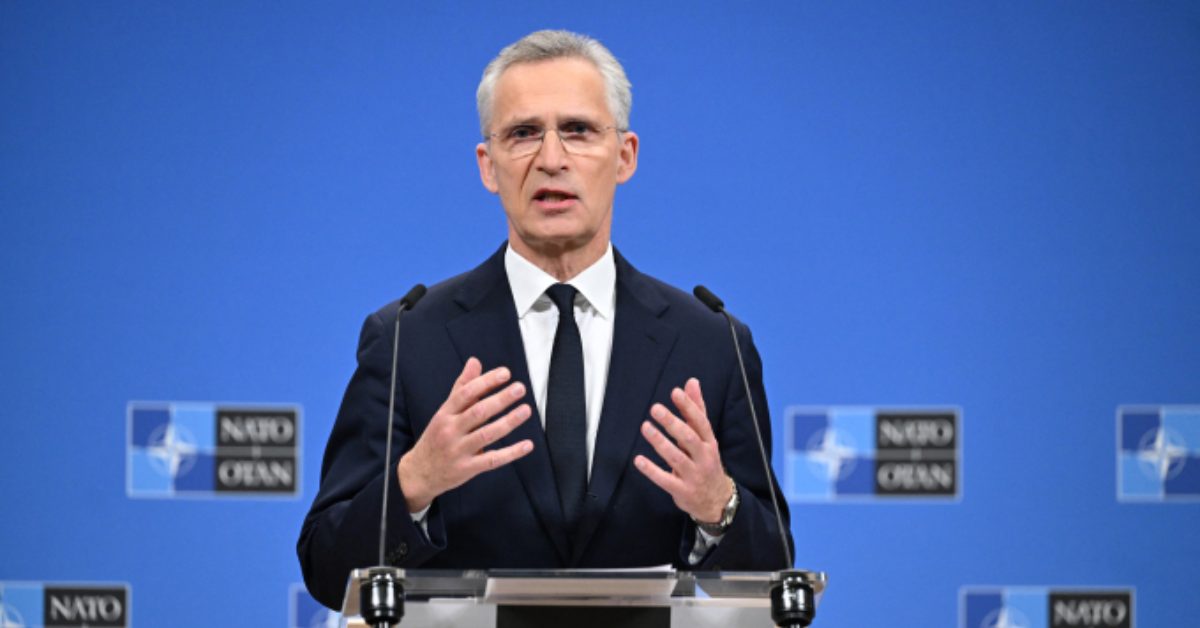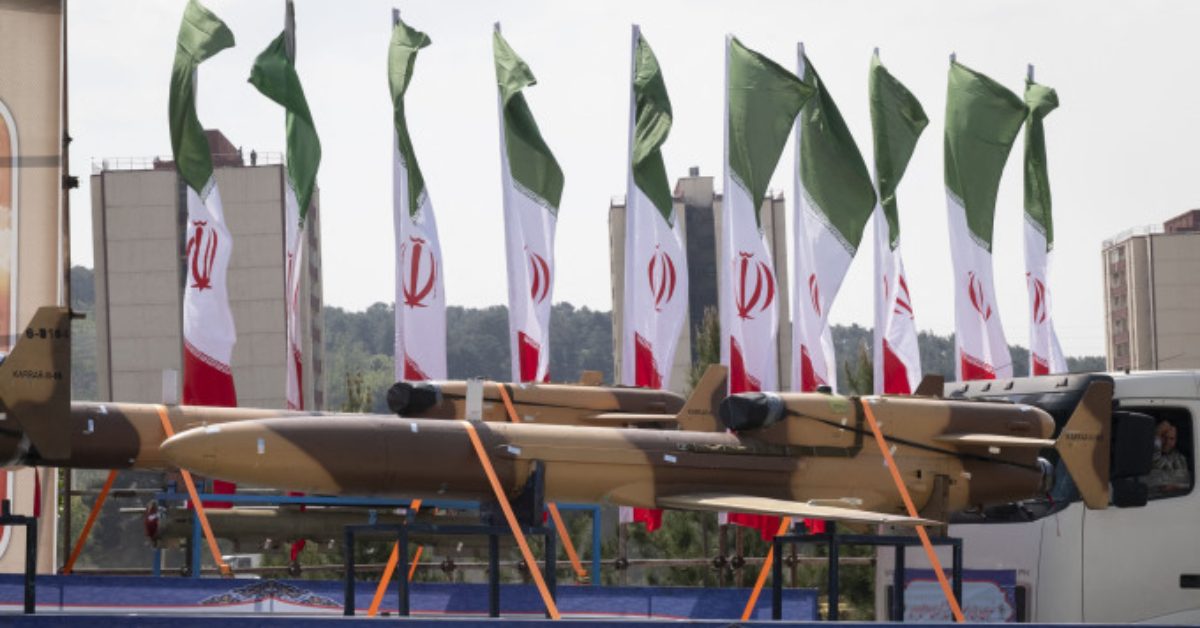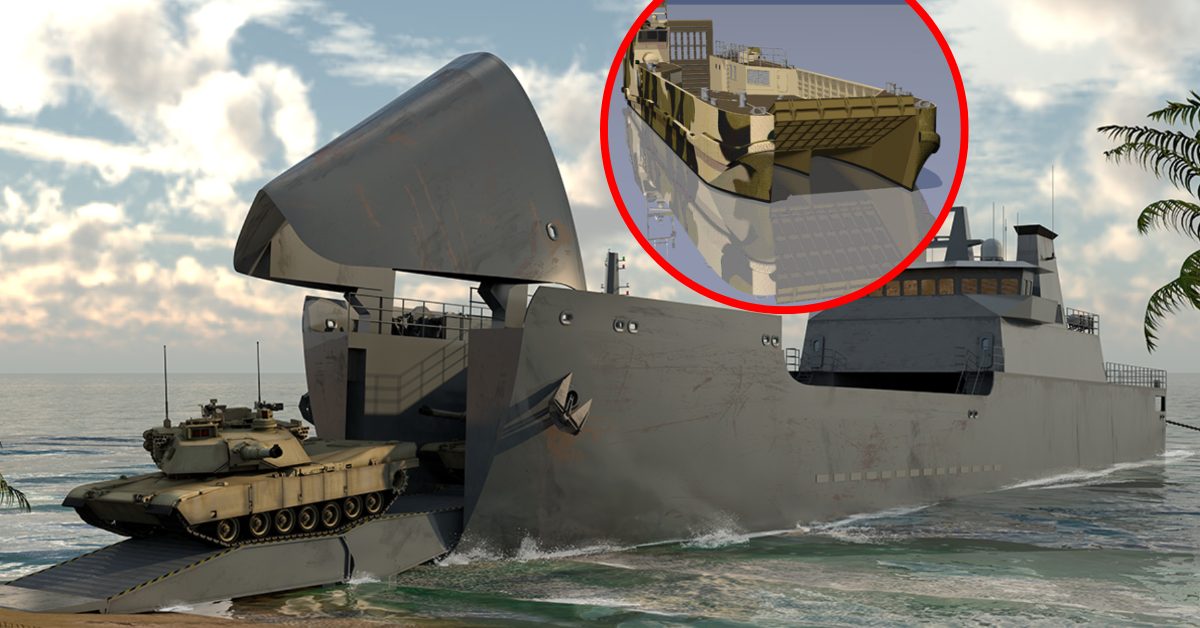A necessary precondition for the sale of second-hand Virginia class submarines to Australia in the 2030s is that their rate of production needs to be substantially increased. This, in turn, requires an increase in funding – an increase that now will not happen because of internal US politics.
Republicans in Congress have rejected even considering an omnibus bill that has the main objective of increasing security at the southern border – but which also contains numerous provisions for extra defence spending. What has received the most attention is that the legislation includes desperately needed money for Ukraine and Israel – but Australia is also a casualty. Not that you will learn that from our own government, which remains determined to conceal what is really happening from the public.

Known as the National Security Supplemental Appropriations Act – 2024, it also included a total of US $3.3 billion in various measures designed to expand the industrial base for submarine construction. The money is divided across a number of areas, including directly on Colombia class missile firing SSBNs (an extra US $1.95 billion); Virginia class SSNs (US $200 million); and a variety of activities such as facilities construction and R&D.
With overall US defence spending capped for the next two years by Congress, there appears to be no way – at least in the short term – for submarine construction to be lifted from its current rate to anything like that required for a sale to Australia. Virginia class SSNs are being produced at a rate of 1.5 per year – and this needs to reach an annual rate of 2.33 before they are being churned out at a rate exceeding the needs of the USN.
Against this background, Australia is on course to transfer $4.59 billion at today’s exchange rate (US $3 billion) to the US Secretary of the Navy by the end of 2024. So, while the US is not prepared to spend its own money to increase submarine production, a supposedly close ally in the form of Australia is on the hook to hand over a massive amount of cash – with no visibility on how it will be spent, and apparently no refund clause.

This complete travesty has been negotiated in secret by national security bureaucrats in both countries with Australian politicians – and in particular Defence Minister Richard Marles – too spineless to even consider some form of renegotiation.
In the US, a political champion of the Virginia class sale is Congressman Joe Courtney, whose district in Connecticut – not coincidentally – is the location of the Groton shipyard that makes submarines. Regarding the Republican decision not to even consider the bill, he issued a statement referring to Congressional House Speaker Mike Johnson:
“This week, Rep. Joe Courtney made it clear again, again, and again to Speaker Johnson that his refusal to allow a vote on the national security supplemental is a vote against AUKUS and our allies in their time of need.
“The bill, which passed out of the Senate on Monday morning with the support of 22 Republicans, includes support for Israel, Ukraine, Taiwan, as well as an often “overlooked” $3.3 billion investment in the U.S. submarine industrial base (SIB) to increase shipyard capacity and availability of attack submarines.
“On the House Floor Wednesday, Courtney highlighted the impact of the SIB investment on the AUKUS mission and implored Speaker Johnson to follow the Senate’s bipartisan lead.”
This plea has fallen on deaf ears.

In mid-December when the US passed their 2024 defence budget, which included provision for AUKUS-related legal changes, Richard Marles was euphoric, saying on December 15 to numerous media outlets, including the ABC:
“Well, we’re very pleased. We were confident that this is what would happen. Obviously, we’re very grateful to the Biden administration, but also to members of the Senate and the House, across both the Republicans and the Democrats.
“I mean, in all the work that we were doing in speaking with members of the Senate and the House, what was clear is that there was genuine bipartisan support, both for the relationship with Australia, but also for this arrangement. But this is a historic achievement. It’s the first time in American history that there has been the authorisation of a sale of a nuclear-powered submarine to another country.”
And your thoughts now, Minister? How are you feeling about US bipartisanship? Any comment?
Incidentally, the legislation to which the Minister referred does not authorise a sale – that decision needs to be taken by a future US President at a yet to be determined date, but not before 2028.
In the meantime, as reported by Defense One, the US Secretary for the Navy, Carlos Del Torro, has lambasted local shipbuilding companies for their excessive greed. Speaking in San Diego at an industry conference on February 15, he said:
“Overall, many of you are making record profits, as evidenced by your quarterly financial statements, and you can’t be asking for the American taxpayer to make greater public investments while you continue to goose your stock prices through stock buybacks, deferring promised capital investments, and other accounting manoeuvres.”
He might have had in mind Huntington Ingalls Industries – co-producer of nuclear-powered submarines, along with General Dynamics Electric Boat. On January 31, the company issued a media release saying:
“HII Authorizes a $600 Million Increase in its Share Repurchase Program to $3.8 Billion
HII (NYSE: HII) announced today that its Board of Directors has authorized an increase in the company’s share repurchase program from $3.2 billion to $3.8 billion and extended the term of the program from Oct. 31, 2024 to Dec. 31, 2028.
“This action demonstrates continued confidence in HII’s free cash flow generation and supports our commitment to return free cash flow to our shareholders,” said Chris Kastner, HII’s president and CEO.”
Buybacks are a somewhat controversial tactic designed largely to boost share prices by reducing the number of them available to be traded. The principal beneficiaries – especially in the US environment – are company senior managers, whose employment packages typically include generous share options. The HII buyback in Australian currency is $5.82 billion.
The forthcoming Australian transfer – it has never been revealed whether the money was volunteered by our officials or sought by the US – is as likely to boost corporate profits as go on actual submarine construction.
The time is long overdue for Defence Minister Richard Marles to come clean and explain to the Australian public how they benefit from the unprecedented transfer of cash to the already bloated, massively profitable, US submarine construction firms when their own government is critical of their greed. Australian taxpayers: don’t hold your collective breath.





